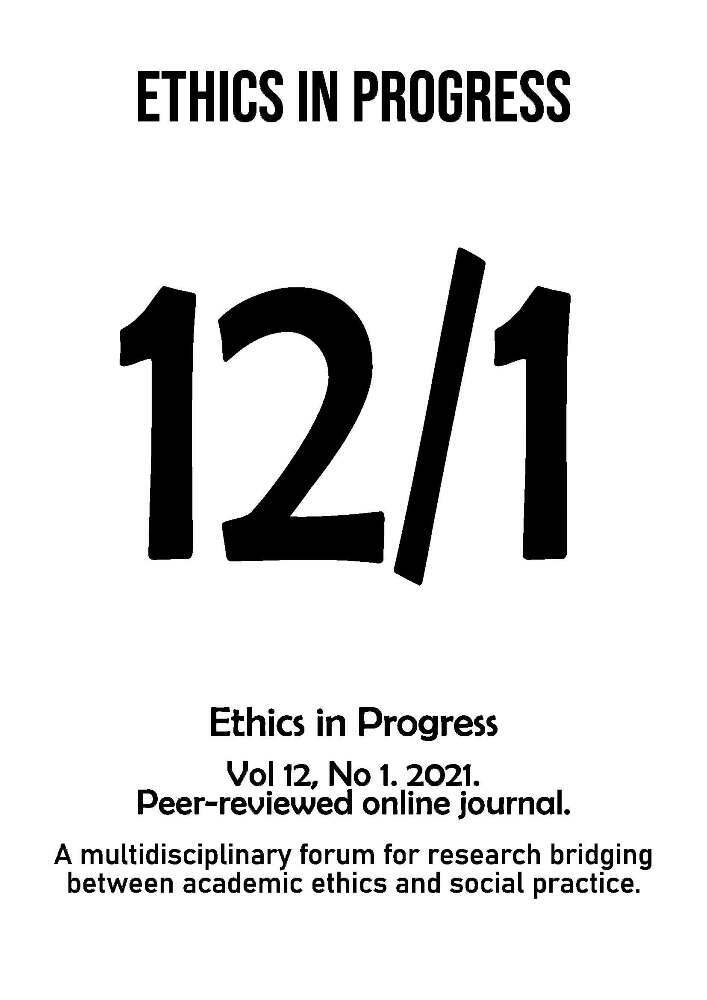Abstract
Often we have to decide on difficult problems and conflicts. For this, a certain level of moral competence is needed, in order to solve them as quickly and adequately as possible. Otherwise these problems and conflicts can overwhelm us, triggering a feeling of fear and panic, and making us react too slowly or inadequately, or both. Fear and panic can make us ignore problems and conflicts, attempt to “solve” them through brute force or deceit, or declare them to be beyond our responsibility and let an authority decide what to do. Often such makeshift solutions seem to work, but, more often, they have damaging effects. Therefore, society tries to curb criminal and anti-democratic activities through coercion, that is, through laws, law-enforcing institutions, and correction facilities – at high costs, and often with little efficacy. In this article I show that such coercion would not be needed if we gave all citizens an opportunity to develop their ability to solve conflicts and problems through thinking and discussion. Moral competence would immunize us against fear and panic, and thus also against immoral practices. Moral competence is not inborn in us, and it does not develop unless it is fostered through proper learning opportunities. Therefore, if we want to live together peacefully in a democratic society, we need to provide proper learning opportunities for everyone, not only of a few people. If the masses are infected by panic, a few rational people cannot stop this pandemic.
References
Asch S. E. 1955. “Opinions and Social Pressure,” Scientific American 193(5):31–35.
Blatt M. & Kohlberg L. 1975. “The Effect of Classroom Moral Discussion Upon Children’s Level of Moral Judgment,” Journal of Moral Education 4:129–161.
Bundesverwaltungsgericht 2005. „Urteil des 2. Wehrdienstsenats vom 21. Juni 2005,“ BVerwG 2 WD 12.04. URL: https://www.bverwg.de/210605U2WD12.04.0 (last accessed on March 7, 2021).
Fromm E. 1973. The Anatomy of Human Destructiveness. New York: Fawcett Crest Books.
Engelbrecht T. & Köhnlein C. 2020. „Die Medikamenten-Tragödie“ [The drug tragedy]. Rubikon September 29, 2020. URL: https://www.rubikon.news/artikel/die-medikamenten-tragodie (last accessed on March 8, 2021).
Gullone E. 2000. “The Development of Normal Fear: A Century of Research,” Clinical Psychology Review 20(4):429–451.
Hemmerling K. 2014. Morality Behind Bars – An Intervention Study on Fostering Moral Competence of Prisoners As a New Approach to Social Rehabilitation. Frankfurt am Main: Peter Lang Editions.
Kohlberg L. 1964. “Development of Moral Character and Moral Ideology,” in M. L. Hoffman & L. W. Hoffman (Eds.), Review of Child Development Research. Vol. I (pp. 381–431). New York: Russel Sage Foundation.
Kohlberg L. 1984. The Psychology of Moral Development. Vol. 2: Essays on Moral Development. San Francisco: Harper & Row.
Le Bon G. 1895. The Psychology of Masses. Cardiff, UK: Sparkling Books.
LeDoux J. E. 1994. “Emotion, Memory and the Brain,” Scientific American 270:32–39.
Li X., Yang J., Li P., & Li H. 2016. “Individual Differences in Moral Judgment Competence Are Related to Activity of the Prefrontal Cortex When Attributing Blame to Evil Intention,” Social Neuroscience 11(4):438–448.
Lind G. 1978. „Wie misst man moralisches Urteil? Probleme und alternative Möglichkeiten der Messung eines komplexen Konstrukts“ [How does one measure moral judgment? Problems and possibilities of measuring a
complex construct], in G. Portele (Ed.), Socialisation und Moral (pp. 171–201). Weinheim: Beltz Verlag.
Lind G. 1989. “Measuring Moral Judgment: A Review of ‘The Measurement of Moral Judgment’ by Anne Colby and Lawrence Kohlberg,” Human Development. Essays on Moral Development 32:388–397.
Lind G. 2000. “The Importance of Responsibility-taking Opportunities for Self-sustaining Moral Development,” Journal of Research in Education 10(1):9–15.
Lind G. 2002. Ist Moral lehrbar? Ergebnisse der modernen moralpsychologischen Forschung. [Can morality be taught? Research findings from modern moral psychology]. Berlin: Logos Verlag.
Lind G. 2019a. How to Teach Moral Competence. New: Discussion Theater. Berlin: Logos.
Lind G. 2019b. “Why We Need to Foster Moral Competence and How.” Presentation at the 13th International Symposium “Moral Competence: Its Nature, Relevance and Teachability,” University of Konstanz, July 24-25, 2019.
Lind G. 2020. “Moral Competence: What It Means and How Accountant Education Could Foster It,” in M. Pinheiro & A. O. Costa (Eds.), Accounting Ethics Education (pp. 155–174). London: Routledge.
Mansbart F.-J. 2001. Motivationale Einflüsse der moralischen Urteilsfähigkeit auf die Bildung von Vorsätzen. Unpublished master thesis. Dept of Psychology, University of Konstanz, Germany.
Milgram S. 1974. Obedience to Authority. An Experimental View. London: Tavistock Publications.
Mofakhami A. 2019. “The Effect of Moral Competence on Online Conformity Behavior.” Presentation at the 13th International Symposium “Moral Competence: Its Nature, Relevance and Teachability,” University of Konstanz, July 24-25, 2019.
Prehn K. 2013. “Moral Judgment Competence: A Reevaluation of the Dual-Aspect Theory Based on Recent Neuroscientific Research,” in E. Nowak, D. E. Schrader, & B. Zizek (Eds.), Educating Competencies for Democracy (pp. 9–22). Frankfurt am Main – Bern – Brussels – New York: Peter Lang Editions.
Reinicke M. 2017. Moral Competence Reloaded. Private publication. Available from martina.reinicke@outlook.de.
Schillinger M. 2006. Learning Environments and Moral Development: How University Education Fosters Moral Judgment Competence in Brazil and two German-speaking Countries. Aachen: Shaker Verlag.
Westheimer J. 2015. “Teaching for Democratic Action,” Educação & Realidade 40(2):465–483.





